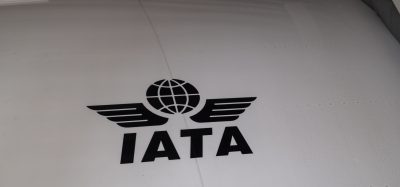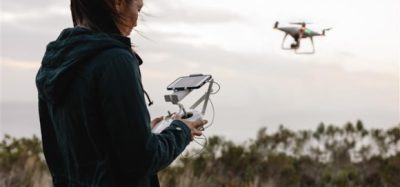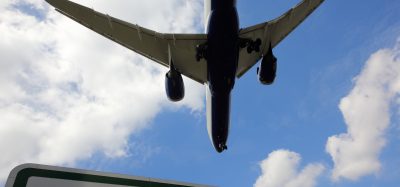The aviation industry must collaborate to prevent human trafficking
- Like
- Digg
- Del
- Tumblr
- VKontakte
- Buffer
- Love This
- Odnoklassniki
- Meneame
- Blogger
- Amazon
- Yahoo Mail
- Gmail
- AOL
- Newsvine
- HackerNews
- Evernote
- MySpace
- Mail.ru
- Viadeo
- Line
- Comments
- Yummly
- SMS
- Viber
- Telegram
- Subscribe
- Skype
- Facebook Messenger
- Kakao
- LiveJournal
- Yammer
- Edgar
- Fintel
- Mix
- Instapaper
- Copy Link
Posted: 9 December 2019 | Tara Nolan (International Airport Review) | No comments yet
International Airport Review explored the industry’s perspective on what additional measures all aviation stakeholders should take in order to help stop human trafficking.


In this column, International Airport Review spoke to industry-leading figures to explore their perspectives on how the industry can tackle the global crime of human trafficking.
  |   |   |   |   |
| Chloe Taillard Yevenues, Counter-Trafficking Project Manager, IOM – France | Fanny Ruinart, Counter-Trafficking Project Manager, IOM – France | Michelle Furgiuele, Trafficking Survivor | Jean-Sébastien Pard, Manager – Facilitation and Passenger Services, ACI World | Delta Air Lines |
Chloe Taillard Yevenues and Fanny Ruinart: Over 80 per cent of international human-trafficking journeys cross through official border points, including national and international airports.
This conclusion, issued from a data brief published by the International Organization for Migration (IOM), is appalling – it highlights that victims are trafficked in front of our eyes, when it is often thought that this is happening in dark and hidden places.
The aviation industry has taken strong action to improve its response to this issue in the past few years. Both IATA’s resolution denouncing human trafficking and ICAO-OHCHR Guidelines – each adopted in 2018 – have served as wake-up calls for many on the role the aviation industry should play in the identification and referral of trafficked victims.
Face-to-face training of frontline staff is key. Although everyone can be a victim of trafficking, knowing the profiles, the routes, the physical, emotional, non-verbal signs is the only way to detect potential victims. We must be proactive.
Partnership is the second key area to explore. Flight attendants, pilots, security screeners and all other actors potentially in contact with passengers should have the means to refer immediately, in each country, any potential victims to professional support services. Local coordination and referral mechanisms should be put in place to ensure safeguards and timely and effective protection for those in need.
To support these processes, IOM France published a counter-trafficking directory, gathering information on more than 80 countries, which was presented during an awareness-raising event at CDG airport this year.
Michelle Furgiuele: The aviation industry plays a vital role in the fight against human trafficking. In fact, many sectors of the aviation industry are on the front lines when it comes to spotting potential traffickers and/or their victims. Providing training and posting literature and signage that is accessible to airport and airline staff is a necessary step to raise awareness and stop traffickers in the act; resulting in lives saved.
Ensuring that all outside contractors hired are also taking a stand against human trafficking allows for a culture where all staff feel safe and comfortable reporting suspicious activities. It is crucial that every detail – no matter how small – is reported.
What are some of the red flags to look out for? Is one traveller dressed far better than their companion? Does one traveller not make eye contact or avoid verbal communication? Is one traveller sitting on provided seating and the other the floor? In many sex trafficking cases, a suspected victim can be well manicured and groomed, yet seem to have rags for clothes. Are you seeing a female with her hair and nails done flawlessly but dressed in tattered clothing? Be aware of travellers who do not look well equipped to be travelling to their final destination. These are all red flags that should be reported immediately.
Together we can unmask these traffickers and help eradicate modern-day slavery by all taking action and reporting these criminals.
Jean-Sébastien Pard: Human trafficking and modern-day slavery has become a multi-billion-dollar form of organised crime, and it requires global action.
Airports are ideally placed in the travel ecosystem to help raise awareness and identify potential signs of human trafficking. More than ever, the airport community is committed to working with its aviation stakeholders to help put a stop to this appalling crime.
Airports can lead by example, providing training and awareness campaigns to help their own staff recognise and deal with possible trafficking situations. These include short sessions on spotting the signs of possible human trafficking during security awareness trainings. Providing e-learning courses can also be a useful tool for all staff. Recently, ACI has made available a free online course to provide airport personnel with an understanding of signs of human trafficking, key issues and associated challenges, while exploring tools made available to combat this illicit trade.
Airports are ideally placed to provide useful information to the millions of people travelling through their facilities every year. Powerful ways of engaging with the audience may be projecting short video presentations through the airport terminal signage system, hosting exhibits, or connecting with travellers by the public address system. This capitalises on the opportunity to reach passengers queueing at security or waiting at the baggage carrousel.
In the ACI Handbook on Combatting Human Trafficking, additional areas of activity have been listed in which airports can take a leading role. Engaging with the community, working with law-enforcement and immigration authorities, and having open communication channels with airline partners are just some of the ways to aid the development of policies and responses.
The more people we reach, the more awareness there will be. Each airport will have its own way of approaching this, and resources are available to support a strong anti-trafficking response. It should come naturally for staff to be vigilant on this issue, and know how to take action.
Delta Air Lines: Following a $2.5 million contribution towards combating human trafficking, Delta Air Lines is now the leading airline in the fight against exploitation.
Leader of Delta’s Executive Steering Committee Against Human Trafficking, Allison Ausband, said: “The problem of human trafficking has to be aggressively combatted from every angle. We all have a role to play and can make a difference.”
Delta’s investment was given to Polaris, the operator of the National Human Trafficking Hotline, which has seen a 36 per cent increase in contacts from survivors and a 25 per cent increase in cases handled.
Helping to provide transport for survivors and victims, ensuring that the National Human Trafficking Hotline has enough staff to respond to the hundreds of calls received daily, and raising awareness about human exploitation are just a number of ways that Delta Air Lines is working to try and prevent human trafficking. Delta Air Lines has now provided more than 100 flights to help transport trafficking survivors through SkyWish, a mileage donation programme. But, there are still an estimated 25 million people enslaved today, with almost 40 per cent of all human trafficking victims reporting that they flew at some point during their exploitation. These figures show that there is still a considerable amount of space for improvement in the way airports can work to prevent human trafficking.
SkyMiles members can donate miles to Polaris to help transport survivors, connect them to safety, or provide critical care. Over six million miles have been donated thus far, and this must continue across the aviation industry. To join Delta and #GetOnBoard, learn the signs of human trafficking, and use the National Hotline to report tips by calling 1-888-373-7888.
Issue
Related topics
Related airlines
Related organisations
Related people
Chloe Taillard Yevenes, Fanny Ruinart, Jean-Sébastien Pard, Michelle Furgiuele

















